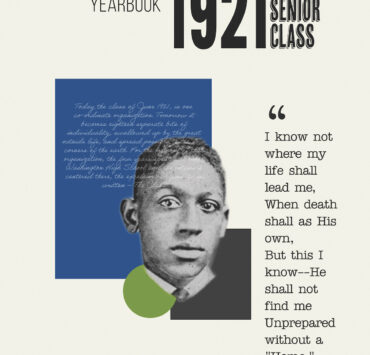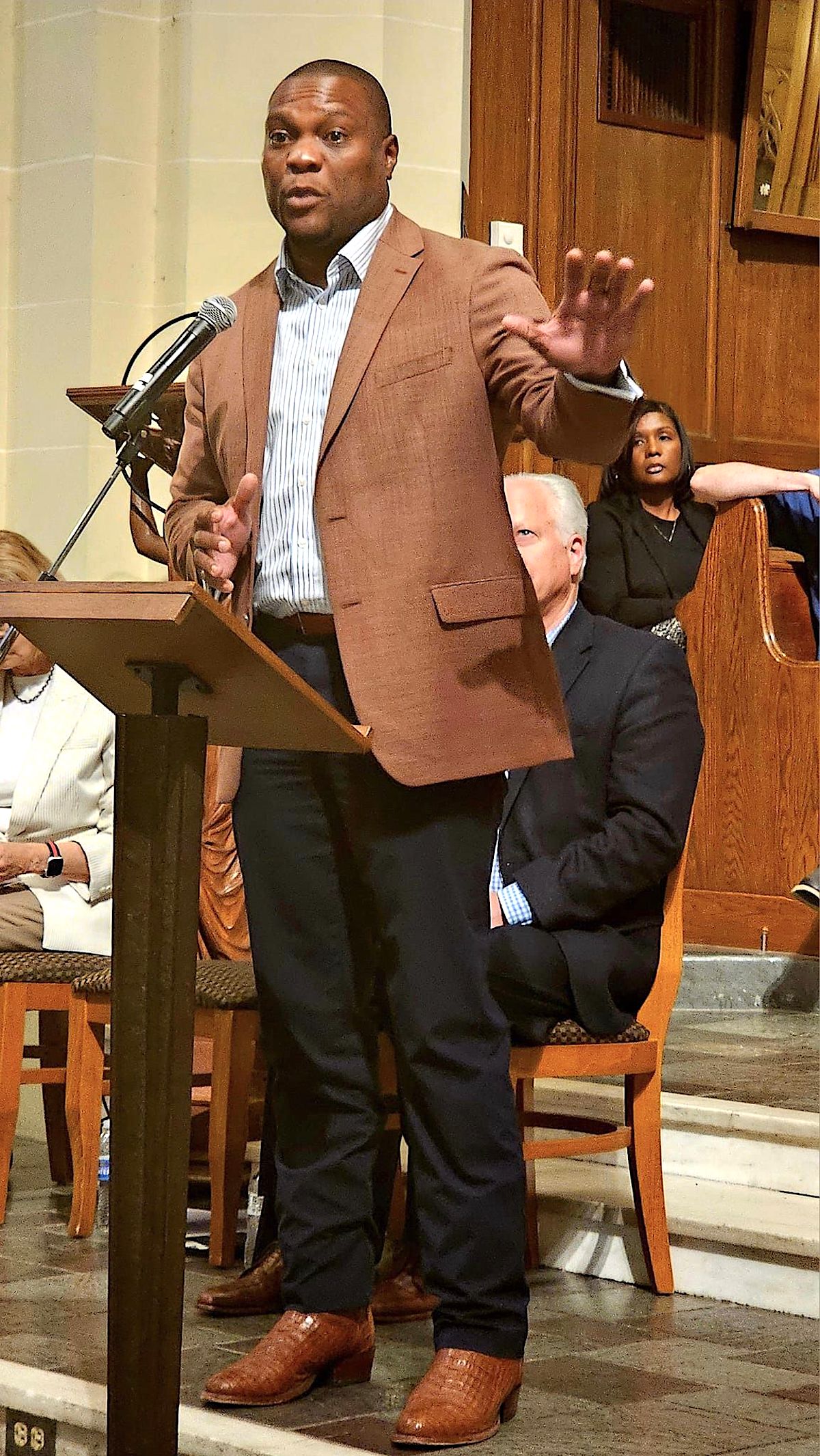
LOCAL & STATE
Kimberly Marsh, The Oklahoma Eagle
Okla. State Rep. Monroe Nichols (D-72), Tulsa Mayoral candidate, speaking during the ACTION, Tulsa Mayor Accountability session on July 28, 2024, at Trinity Episcopal Church. Photo, Kimberly Marsh, The Oklahoma Eagle
Tulsa resident Sherry Laskey finds it difficult to get home at night without experiencing trauma so unsettling that it erodes her trust in the city government’s effort to make her north Tulsa community safer. On dark nights, she has more than once swerved into oncoming traffic to avoid a pedestrian walking along a roadway that lacks sidewalks and adequate shoulders.
Laskey, a health and wellness advocate, says her northside neighborhood has been historically neglected, and that she and her neighbors “are living in the dark.” She warns that the city’s budget decisions may cost lives. Laskey is asking the next Tulsa mayor to turn the street lights back on.
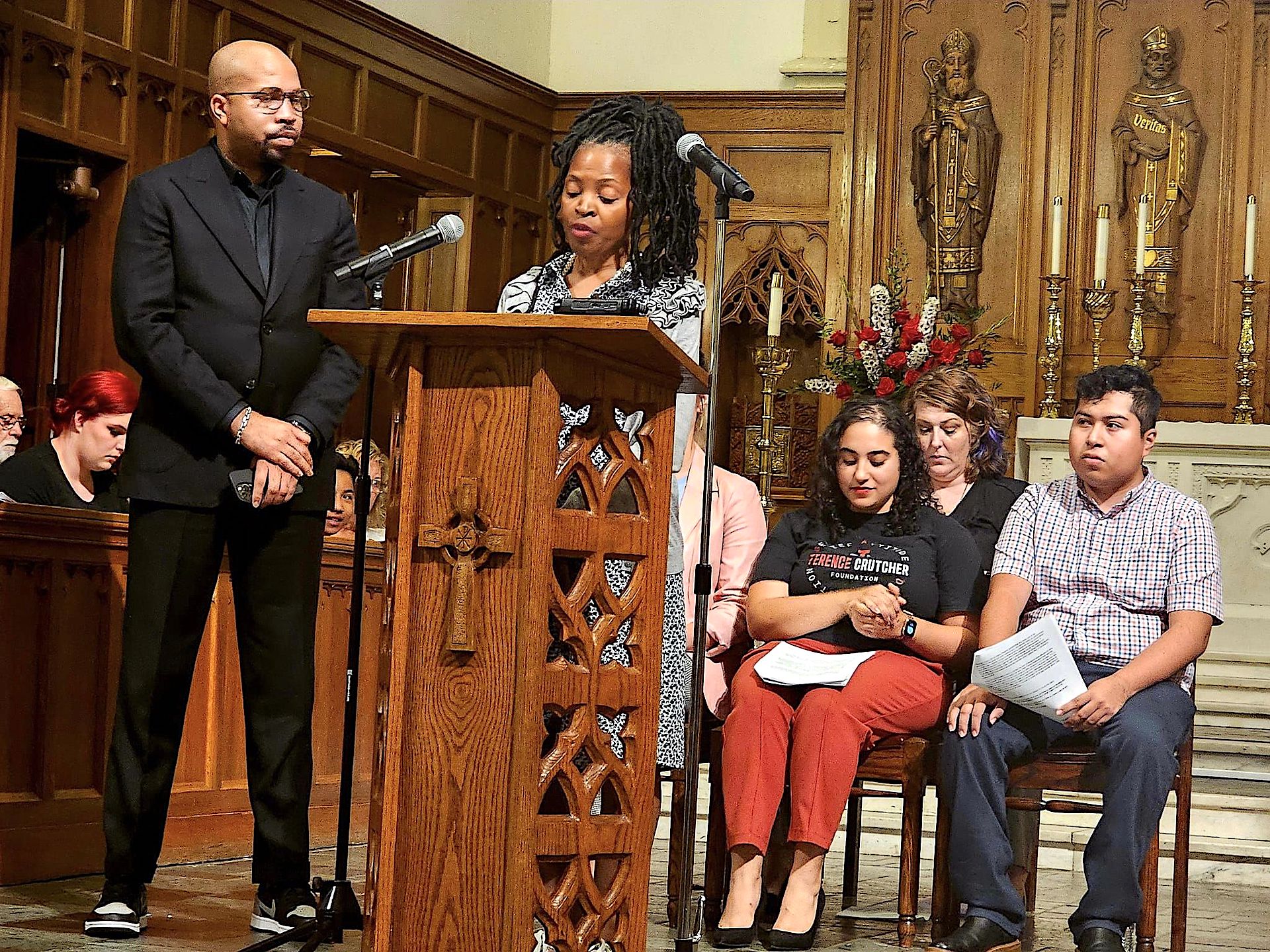
She was one of many Tulsa residents who shared their stories during a Tulsa Mayor Accountability session. ACTION Tulsa (Allied Communities of Tulsa Inspiring Our Neighborhoods – Tulsa’s local affiliate of the Industrial Areas Foundation, a faith-based, civic institution non-profit) convened the meeting to put the three leading mayoral candidates on the spot to work with the nonpartisan group of 16 organizations on specific demands for community safety, public school support, public transportation, mental health and a program to provide institutional IDs for immigrants.
The standing-room-only meeting drew historic attendance. In all, 559 people – a diverse group from across Tulsa – gathered to support the session and hear responses from mayoral candidates Brent Van Norman, Karen Keith and Monroe Nichols. The three were put in the hot seats in front of the church sanctuary to hear stories about issues Tulsans have had in their neighborhoods, and then respond to a group request to commit to work on those items.
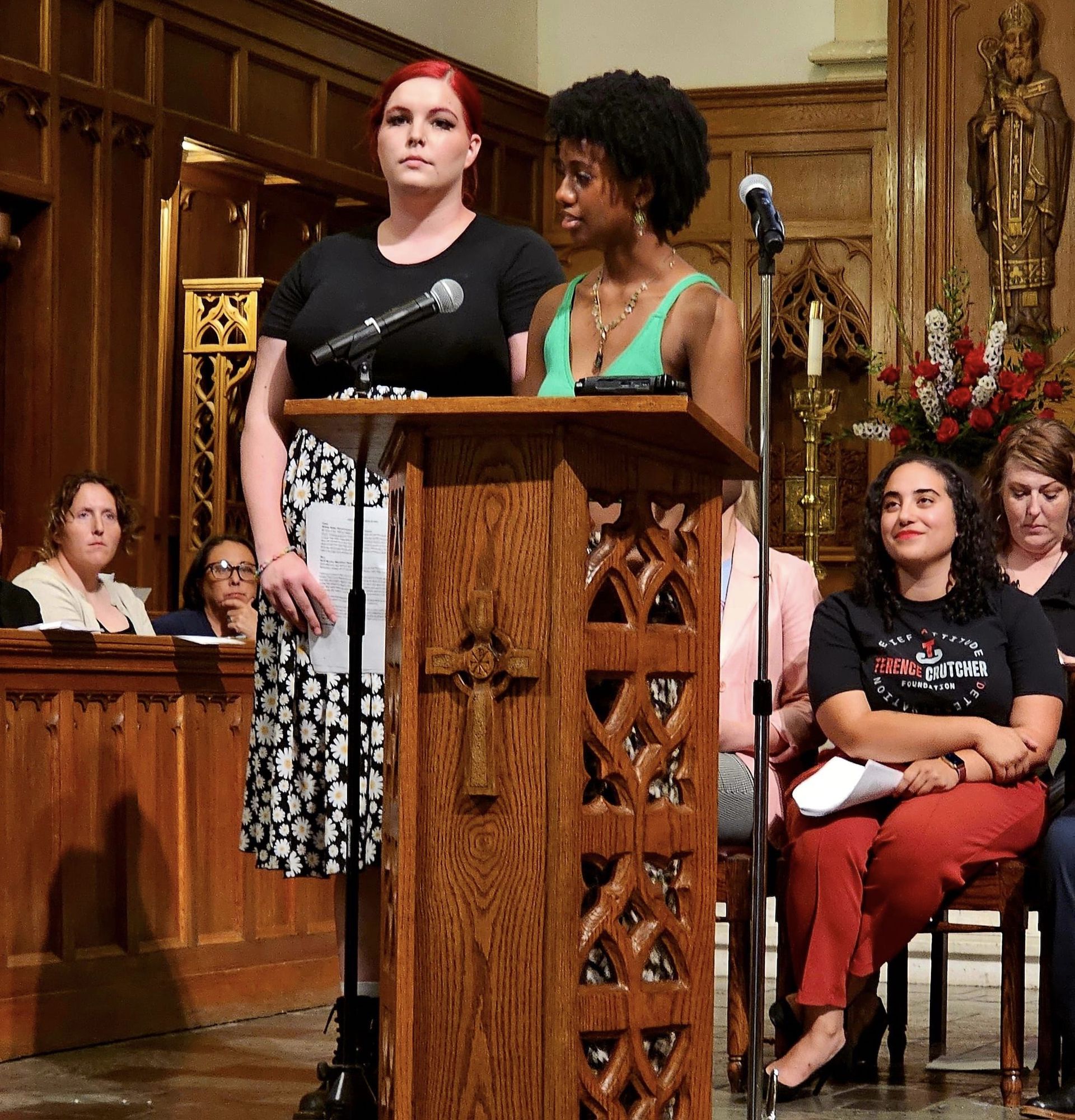
Aries Brown, another Tulsa resident, used the meeting to voice the need for improved options for public transportation during the gathering. In a city that has heavily geared its priorities toward automobile traffic and street repairs rather than public transportation, Brown represents a big sector of Tulsans who often feel stranded. She’s not a car owner, works across town at night and is unable to depend on reliable public transportation. She is asking the next mayor to seek and to fund a better public transpotation system with extended hours.
MacArthur Elementary School Principal Sandi Morrow also discussed an issue in the meeting. In one of the many mornings she has watched children attempt to cross 21st Street safely, she witnessed a dangerous scene where a child darted across the street, leaving his younger sister in between the traffic lanes, terrified to cross. With coaxing, the first grader finally made it. But that’s just one of 216 school children who cross the street each day without an adult guard posted at the crossing, Morrow said.
The City of Tulsa is responsible for street safety. It reportedly underbudgets for school crossing guards. When residents previously asked for a crossing guard to be assigned to MacArthur, they were told that one would have to be pulled from another school site. Morrow wants the next mayor to listen to their pleas, and act to improve community safety.
The storytellers and organizers represented various churches and other organizations including, Los Promotores, Tulsa Classroom Teachers Association, United Tenants of Tulsa, Phillips Theological Seminary, Leadership for Educational Equity, and the Terence Crutcher Foundation. ACTION, which stands for Allied Communities of Tulsa Inspiring Our Neighborhoods, is a broad-based organization of various faith-based and civic institutions working together for the common good of its members and the Tulsa community. As a grassroots advocacy organization, ACTION is politically engaged but is non-partisan. The organization employs a strength in numbers strategy to give it a voice that may encourage Tulsans to register to vote and go to the polls to cast a ballot for local, state and federal government candidates that best reflect their interests. ACTION’s leadership has focused on storytelling and the art of listening to residents who bring issues to the table for inclusion in an overall people’s agenda they ask candidates to support.
Rev. Kara Farrow, an ACTION organizer selected to set up the focus of the work being done in the session, said the churches are involved in this nonpartisan ACTION work for the betterment of our whole community. “The way that we go about doing that is listening to these stories, and then building this relational power so that we can make an actual change,” she said. “This is justice work, and it’s just as important for the church to be a part.”.
The gathering was community builder Lacreshia Jackson’s first experience at an accountability session.
“I feel that the candidates have done a great job saying yes to everything,” Jackson said. “You have to know the way that they think and all the issues that do matter most.”
She said she learned a few news things, intends to stay informed, work to get out the vote and get people of color to participate in future sessions.
The three mayoral candidates responded to all requests with a resounding yes, then qualified each affirmation with their position, the challenges they see and the potential solutions. They also agreed to work with ACTION within the first 100 days of office to address their issues.
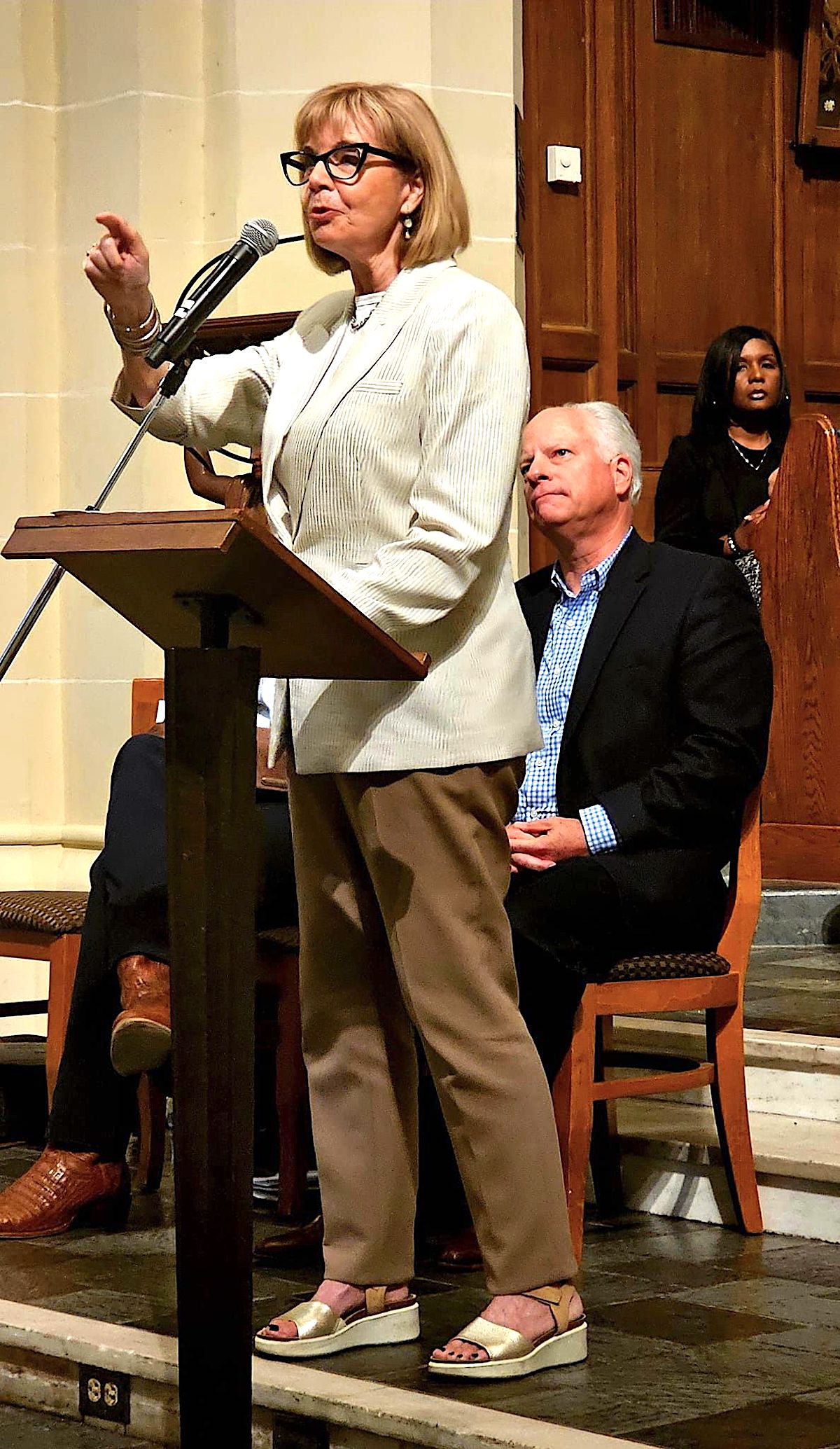
On Crossing Guards
On the issue of adding school crossing guards, Keith said if elected she wouldn’t wait out the budget cycle to address the issue, but she also pointed out that increasing funding for the program does not address the historical problem that Tulsa has with attracting candidates for the posts. Then, on the spot, she made a call for recruits.
“There are 77 schools and we fund 56. MacArthur (Elementary) needs additional people. Is anybody in this room willing to stand up and help fill the gap? Because that’s our problem Recruiting individuals to do the job.
“In this room, I’ve never seen a more activated group of people in my life, I’m thinking there is somebody here who will step up and help,” she said. “So let’s fix this. This isn’t something that we wait on until the next budget. We do it now”
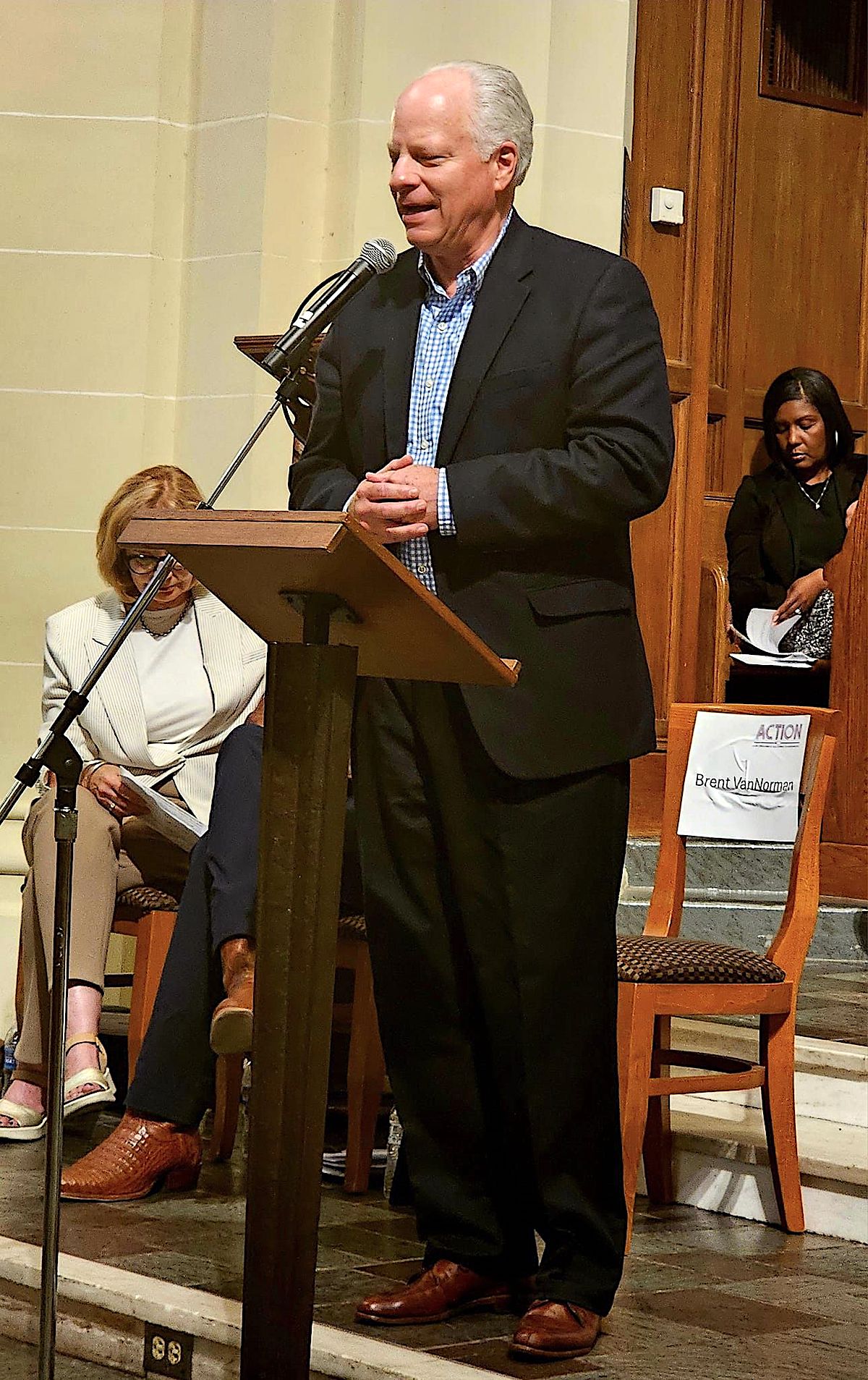
On Stray Dogs
Van Norman responded to a request to commit to community safety with a story about his worries about the danger of stray dog attacks on residents.
“When I was young I was bitten, fairly severely, by a dog and to this day, even though I’m a dog lover, I still have a certain amount of fear. So I can appreciate students walking to school in fear. We absolutely have to take care of that issue. I am hearing that some of them (dogs) are being imported to North Tulsa from other areas and we need to go upstream and find out who is doing that and prosecute those folks.”
On Public Transportation
Nichols said not only would he be committed to public transportation improvements, he also would make sure the solutions work for the people who are the actual users of the system. He said in addition to meeting with MetroLink, he would invite the impacted community – the passengers – to the Mayor’s office for progress checks.
“If you’re going to make additional investments for what is needed, the question is always does this actually help connect people to the job. Does it actually connect people to the grocery store and is it actually connecting people to a doctor’s when they need it? So my answer is yes,” Nichols said,
On Institutional IDs
ACTION Tulsa asked the candidates to negotiate and implement a proposed institutional ID strategy to decrease fear in the immigrant community and improve community relations.
Ken Cox and Maria de Leon of Tulsa Lutherans in Action, emphasized that Oklahoma House Bill 4156, even though its enforcement has been stayed by a federal injunction, created more fear among the immigrant communities in Tulsa.
“ACTION has established an Institutional ID strategy that creates an unofficial ID from established institutions like congregations,” Cox said. ‘We know that our federal immigration system is problem. We also know that immigrants are an important part of our community and economy. The Institutional ID strategy is meant to build trust between the American community and local law enforcement, create stronger ties to our congregations and institutions, and teach families and law enforcement how to better communicate using translation and interpretation.”
De Leon followed. “House Bill 4156 is not strengthening our community but increasing the fear among our people who worship next to you,” she said. “Immigrants, congregation and law enforcement would all benefit from our institutional ID strategy locally then why do we not invest in each other.”
Keith responded, “Can you imagine being picked up by a police officer and have no ability to communicate? There are some really positive ideas involved and so I absolutely will work with ACTION and the police department and our chief to see if we can bring something like this to fruition.”
Nichols said he’s worked on this issue since 2017 after talking to police departments in Oklahoma City and Tulsa who said it is the number one public safety issue in the state of Oklahoma.
“And so I wanted to let you know that I’m committed to this thing, and you’re willing to do whatever it takes to happen, because I know that this is a public safety standpoint,” Nichols said.
Mental Health Crisis Intervention
One fall night, Educator Susan Griffin received a phone call from a student who was mentoring a freshman girl. The mentor relayed a text to Griffin that she received from the overwhelmed freshman who said she wanted to take her own life.
“Mental health issues like this don’t occur during daylight hours, as my former students can tell you,” Griffin said. “Tulsa desperately needs Mental Health Crisis Response Teams available during nighttime hours as well, for all Tulsans.”
All three candidates committed to work with ACTION to increase funding for mental health crisis response so that the Alternative Response Team can run 24 hours a day, seven days a week.
The Alternative Response Teams consist of a CIT trained paramedic from either the Tulsa Police Department, Fire Department as well as a clinician from COPES. Keith said they save lives every day, and that the expansion of the program is a “win-win” for all.
Van Norman suggested adding a fourth category to the 911 voice response system to prompt a mental illness crisis call, so that the caller can be more efficiently directed.
“Secondly, I would say with the added staff on, we need a look to see what the volume was at various times. But we might be able to go to an on-call approach with providers…so that it doesn’t have to be a full time person, but it could be somebody that is being compensated while they’re at home and available for a (prolonged) call.”
Nichols again referred to measured impact with respect to the investment being made in the system to “make sure the system is working for folks who are dealing with crisis to o make sure that they have the help that they need.
“And I really want to make sure Tulsa becomes a place where we take care of folks are struggling with these issues,” Nichols said.
Efforts to get the vote out this year are accelerating. In addition to monthly canvassing, ACTION Tulsa’s leadership in the Terence Crutcher Foundation is now focused on daily walks around neighborhoods to prepare people to register and vote in the municipal elections.
Municipal elections will be held on Aug. 27, with early voting to begin Aug. 24. Tulsans who want to vote in municipal elections must be registered with the Tulsa County Election Board by the end of Friday Aug 2. Presidential and state general elections are scheduled for November. For more information on voting registration and election dates, visit https://www2.tulsacounty.org/electionboard/, call 918-596-5780 or email electionboard@tulsacounty.org.








